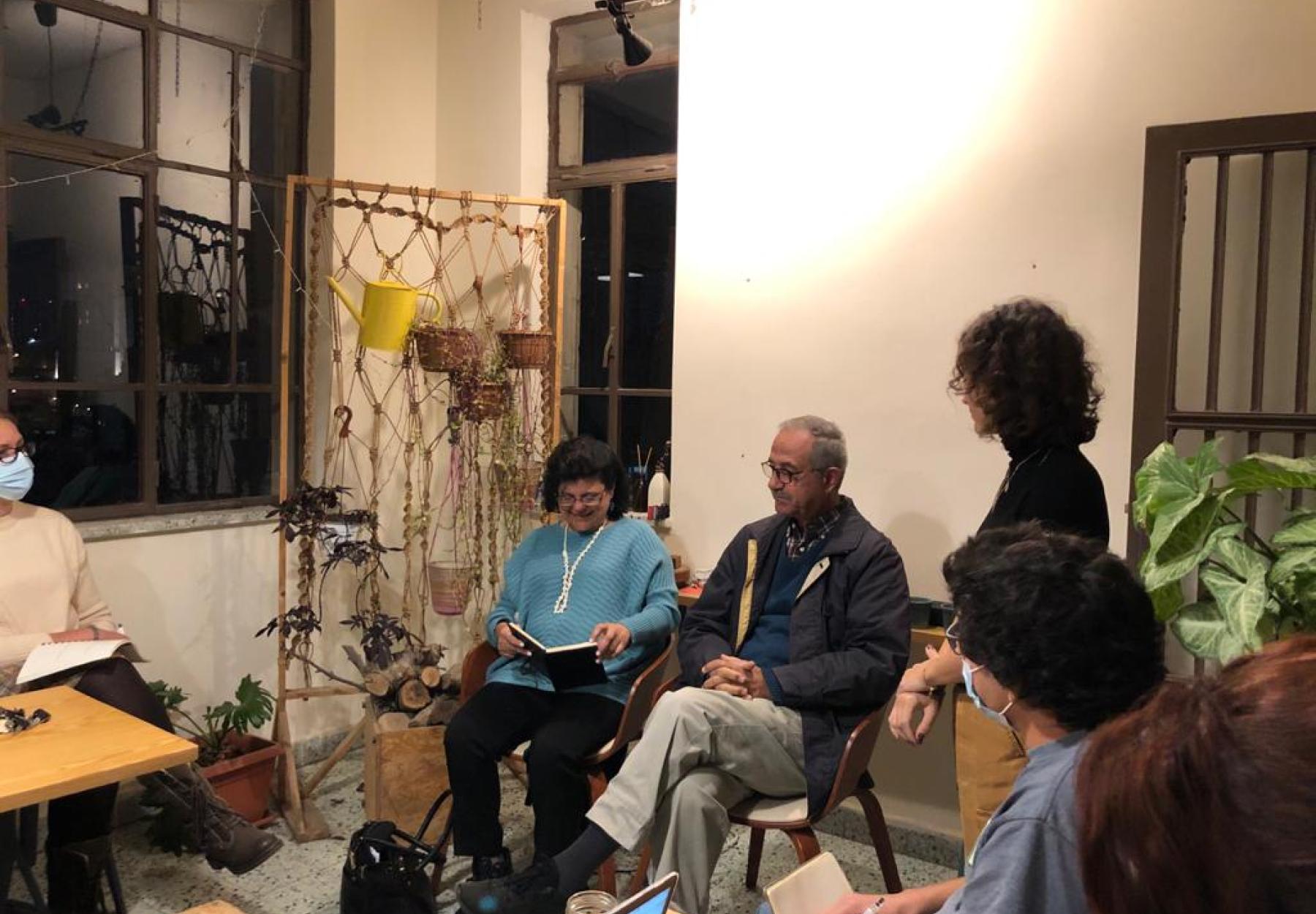
Eng. Razan Zuayter, APN Chairman of the Board, was invited by "Goethe-Institut Jordan" and Design Studio "Namliyeh" to take part in a seminar within the " Fabrakat" training program on Tuesday, November 16, 2021, to discuss the food system in Jordan and its relationship to the food systems around the world.
The seminar was also attended by Eng.Hassan Al Jaajaa, APN Co-Founding Member, and on behalf of "Namliyeh", architect Aya Shaaban", welcomed both Zuayter and Al Jaajaa and the other attendees whose origins varied from Jordan, Palestine, Lebanon, and other Arab countries. They all shared the same goal, which is to protect the regional food organization.
Zuayter talked about the failure of global systems at the moment, starting with the COVID crisis, which revealed unprecedented disadvantages to these systems. Moving on to discuss monoculture systems, the use of chemicals in the agriculture sector, the promotion of genetically modified foods (GMO), environmental waste policies and monopolization of the food production systems. Concluding with the policies affecting food systems in the presence of war and occupation.
These manifestations and several others are the main reason behind why popular civil society organizations, such as The Arab Group for the Protection of Nature and others, boycotted the World Food Summit called for by the United Nations last September. An alternative people's summit was held, to develop just, equitable, healthy, and sustainable food system methods that are distant from the policies of capitalistic companies who promote these manifestations, and from the control of the World Economic Forum, including the governance of large companies over food systems, all due to the opaqueness of their work, and the weak involvement of civil societies in food security policy making.
Zuayter also encouraged Namliyeh's participants to contribute to rebuilding their relationship with their roots and land, through the work they carry out. Their work should accommodate economic, social, cultural and environmental aspects, in addition to being beautiful and creative. Moreover, Eng. Razan emphasized the importance of the Arabic language and urged the participants to cherish it as their authentic identity.
Towards the end of the seminar, Eng. Zuayter shared the sections that were agreed upon at the People's Summit on Food Systems, where they pledged to work collectively to implement civil, national, regional, sectoral, and substantive action plans, which were appointed during the workshops, public forums and consultations organized within the framework of the people's food summit to improve the current food systems, which can be characterized by food sovereignty and democracy in the design of food and agricultural policies, sustainable environmental agriculture in all aspects of production, distribution and consumption, and the peoples' right to land, production, materials, safe and healthy food associated with the culture of the region.